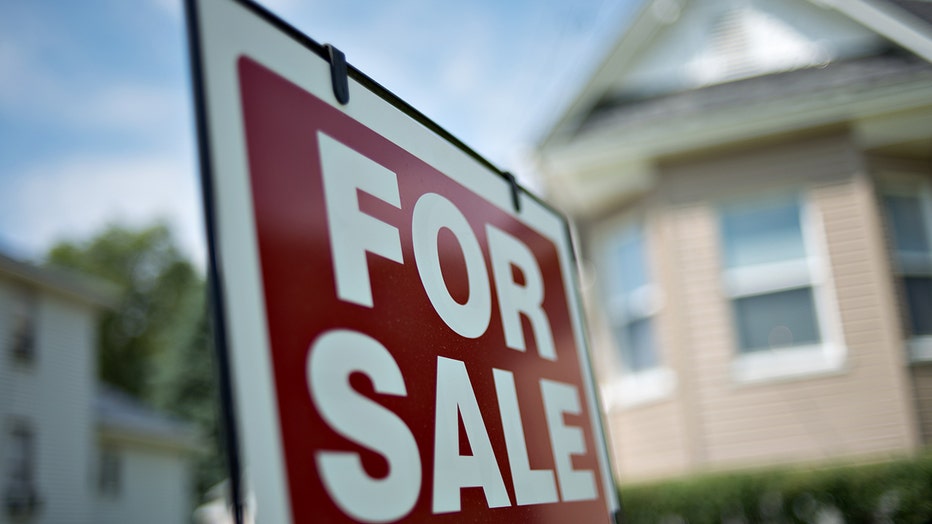High mortgages rates will weigh on the housing market for years
Housing Market: What's new with mortgage rates
What is the current state of the housing market? Lawrence Yun with the National Association of Realtors joined LiveNOW from FOX's Josh Breslow to discuss the latest.
The U.S. housing market faces a long recovery from the steep increase in mortgage rates over the past year, which brought an "abrupt end" to the real estate boom in the economy.
That is according to a new forecast from Moody's Analytics, which projected that property values in the U.S. face a 2.4% decline next year as mortgage rates continue to weigh on the real-estate market.
"While maturing millennial households drive housing demand, the doubling of U.S. mortgage rates is causing notable retreats in certain markets, mainly in western states," the analysis said.
Mortgage rates spiked over the past year as the Federal Reserve waged an aggressive campaign to crush high inflation, approving 10 rate hikes in the span of 15 months. While the federal funds rate is not what consumers pay directly in mortgage, it affects borrowing costs for home equity lines of credit, auto loans and credit cards.

A "for sale by owner" sign stands outside a home in LaSalle, Illinois, U.S., on Friday, June 7, 2013. (Credit: Daniel Acker/Bloomberg via Getty Images
Even just a minor change in rates can affect how much would-be homebuyers pay each month.
MORTGAGE CALCULATOR: SEE HOW MUCH HIGHER RATES COULD COST YOU
A recent study from LendingTree compared the average monthly payments on 30-year fixed-rate mortgages in April 2022 – when the rate hovered around 3.79% – and one year later, when rates jumped to 5.25%.
It found that higher rates cost borrowers hundreds more each month and potentially added as much as $75,000 over the lifetime of the 30-year loan.
RELATED: Remote work could wipe out $800B from office building value by 2030
"Potential homebuyers and existing homeowners needing to refinance or with variable payments now face materially larger monthly loan costs, against much more modest changes in their incomes," the Moody's research said.
Mortgage buyer Freddie Mac said Thursday that the average rate on the 30-year loan fell to 6.78% from 6.96% the previous week, the first decline since June and the biggest one-week drop since March.
Still, the rate remains well above the 5.54% recorded just one year ago and the pre-pandemic average of 3.9%. And they are unlikely to return to that 3% level anytime soon.
COMMERCIAL REAL ESTATE CRASH STILL LOOMING OVER US ECONOMY
The Fed is expected to approve an 11th rate hike at the conclusion of its two-day meeting on Wednesday, bringing the federal funds rate to a range of 5.25% to 5.5%, the highest level since 2007. Policymakers are also likely to emphasize that another increase may be in the cards this year – and that rate cuts are not coming anytime soon.
"The scope for long-term rates, including certain mortgage rates, to decline as central banks begin to shift to a neutral policy stance is limited," Moody's wrote in the analyst note. That is because long-term, risk-free benchmark yields are likely to continue hovering around current levels, assuming the central bank successfully wrangles inflation under control without tipping the economy into a recession.
So, as long as monetary policy remains tight, mortgage rates are projected to stay higher than pre-pandemic levels, the analysts said.
There are additional risks for mortgage rates.
FED PAUSES INTEREST RATE HIKES, BUT HIGH MORTGAGE RATES COULD BE HERE TO STAY
"In the U.S., historically wide loan spreads over benchmark rates suggest room for some additional declines in mortgage costs, but factors such as the Federal Reserve's unwinding of its $2.5 trillion mortgage bond portfolio as part of its ongoing quantitative tightening, higher credit concerns, market volatility, or fallout from bank balance sheet stress could delay the decline in spreads vis-à-vis benchmark yields and the benefits for mortgage rates," the note said.
Despite higher interest rates, home prices have been slow to fall as would-be buyers face a worsening inventory shortage.
That is largely because sellers who locked in a low mortgage rate before the pandemic began have been reluctant to sell with rates continuing to hover near a two-decade-high, leaving few options for buyers.
A recent report from Realtor.com showed that the number of available homes on the market in June was down more than 47% from the typical amount before the COVID-19 pandemic began in early 2020.
"It is not likely we will see mortgage rates below 6% before the end of 2023," said Lisa Sturtevant, the chief economist at Bright MLS. "But rates should continue to come down from where they have been this summer. The question is whether they will fall enough to entice sellers into the market who will have to give up the super low mortgage rate they secured during the pandemic."
Find more updates on this story at FOXNews.com.

